|
Between 15–17 May Hanoi will host TECHFEST Vietnam 2015, introduced in 2 previous Startup Commons’ posts: TECHFEST Vietnam 2015 and TECHFEST Vietnam 2015: Investors’ Profiles. In this post, I would like to present the perspective of one of the event co-organisers: HATCH! PROGRAM, an incubator based in Hanoi which provides mentorship, connections and financial support to early-stage entrepreneurs. Recently I have had an interview with its 2 representatives: Pham Quoc Dat, Cofounder and Director, and Le Viet Dat, Cofounder and Head of the Community Building Program. Firstly, they explained why TECHFEST Vietnam 2015 is an important event for the startup community and presented activities which they will be coordinating. The second part of the interview focused on other HATCH! PROGRAM projects. What kind of impact do you think TECHFEST 2015 can have on the startup ecosystem in Vietnam? How will it affect your own work? Pham Quoc Dat: TECHFEST 2015 is a festival for technologists, entrepreneurs, startup supporting organisations based in Vietnam as well as organisations and investors from the USA, EU, Israel, Australia, Singapore and other Southeast (SE) Asian nations. Not only does this event provide an opportunity for the startup ecosystem to look back and celebrate all tech achievements, but also creates a platform for open discussions and sharing experiences to address challenges and enforce future innovative technology solutions. It will contribute significantly to the startup ecosystem with valuable insights, strategic directions as well as a national and international network. Then we can witness more successful stories of Vietnamese tech startups. As one of the most active community builders, HATCH! PROGRAM is glad to be a co-organiser of TECHFEST 2015. The spirit and objectives of the event are aligned with our mission and strategic activities: community building, startup incubation and seed funding. We are looking forward to opportunities which this 3-day event can brings us: to work with the most promising startups and widen our network of local and international experts and other regional startup supporting organisations. This will help HATCH! to get some new insights into the market, select the most competitive startups for our incubation and funding, and also tighten our network with national and international partners. In what ways do you support the National Agency for Technology Entrepreneurship and Commercialization Development (NATEC), the Ministry of Science and Technology of Vietnam, in organisational matters? Are you going to be in charge of any activity during the event? Le Viet Dat: HATCH! PROGRAM is fully in charge of developing the TECHFEST brand identity and values as well as consulting and managing the communication campaign and event logistics. We also contribute to the programme with 2 activities: a workshop on Translation of Science and Technology into a Good Business with Dr David Hardman, CEO of Birmingham Science Park, and a fireside The Missing Dots. Could you tell a bit more about these 2 events? Le Viet Dat: In the workshop Translation of Science and Technology into a Good Business, Dr Hardman will share his knowledge and experience in transforming science and technology into a working business model. He will present biotech as a potential direction. During the fireside The Missing Dot, HATCH! wants to initiate an open discussion on product development. This fireside aims to raise interests and concerns from different perspectives on how to develop more competitive and innovative products in Vietnam and international markets. It will also fire up some initial practical solutions. How would you encourage participating in TECHFEST Vietnam 2015? Le Viet Dat: TECHFEST 2015 has been very attractive to many technology enthusiasts, therefore, there is no doubt that we will attract a thousand participants. What we are working on is to encourage a ‘real discussion’ and ‘real interaction’ in every event activity. We invited national and international renowned technologists, experienced entrepreneurs and industry experts to provide market insights and initiate a talk about the next trends and initial solutions. We will try to create a real startup atmosphere so they will be more willing to share their thoughts. HATCH! PROGRAM has launched 3 initiatives: (1) HATCH! COACH, product development training, (2) HATCH! NEST, co-working space, and (3) HATCH! ANGEL, an angel investor network. Each project is tailored to specific needs of Vietnamese startups. What results have you already achieved? Pham Quoc Dat: It seems that these 3 projects are separated, however, they closely support each other. Community building activities such as Coffee Talks, networking events and co-host events, HATCH! COACH, a hands-on education course, and HATCH! NEST, our co-working space, help us to build up a portfolio of startups and data for resources in Vietnam. HATCH! ANGEL will select the most promising startups to put into short term incubation and provide seed funding. Last year we successfully made one deal: after 3 months of incubation, we matched a startup working in the educational field with some angel investors. At the launch of HATCH! ANGEL last month [on 23 April – ed. note], we had one pitch in front of 25 angels. HATCH! COACH focuses on a product development training programme which has received more than 40 applications. It has addressed directly the need for short and effective training for startups, especially when they are in the product development stage. The new course will be officially launched in early June. HATCH! NEST is now under re-construction and expected to open for leasing and event organising in late May. Many programmes and activities of HATCH! such as HATCH! COACH will be organised at HATCH! NEST, where we can collect all resources and enforce strategic connections between startups and their supporters. It received 10 applications in just one day after an early-bird registration was announced. HATCH! ANGEL is more ambitious. It provides what startups need exactly: seed funding. We will select the most promising startups to facilitate investment relationships with angels within our network. Once a month we will organise a pitching event to provide market insights and updates to our angels and also opportunities for 2 startups to sell their businesses. In June there will be the 3rd edition of HATCH! COACH, product development training. Could you describe the training programme in more detail? Le Viet Dat: HATCH! COACH aims to guide young entrepreneurs through the process of startup development with hands-on coaching. This time the training will focus more on product development: the process, techniques and the product methodology behind. During 6 weeks, teams will be guided through the main stages that a product manager should be aware of: from designing reliable experiments for market validation and iterating UX / UI design to growth hacking. They will be instructed by coaches who are well-known in the community for their expertise and successful products. They will share their know-how, guide and help teams to accelerate the development of their products. At the end of the course, they will be presented in a show case, and the most promising and committed team will receive USD 500 as initial support for the next development stage of their product. What kind of startups usually enrol in the training? Le Viet Dat: Each training has a specific theme based on careful market research. The participants of HATCH! COACH 3 are startup product managers, technology developers, designers and wannabe entrepreneurs who want to refine their products. At the moment, there are 25 investors in HATCH! ANGEL. How are you going to attract more investors to your network? Pham Quoc Dat: We have built up the angel network based on our current network and activities, especially the 2nd annual HATCH! FAIR. We have worked with a few high ‘net-worth’ individuals and invited them to join our network. Additionally, they present themselves as our representatives and supporters to refer more contacts to HATCH! and invite their friends or partners to become our angels. Besides, we also approach other potential connections by actively joining networking events and organising or co-hosting events on an international scale such as HATCH! FAIR and TECHFEST or thanks to our international partners such as the World Bank, Tigers@Mekong or Seedstars World. There are 3 investment areas of HATCH! ANGEL’s interest: technology, education and agriculture. Special attention is given to innovations in technology. What results do you aim to achieve? Pham Quoc Dat: This year HATCH! ANGEL aims to attract 100 applications from early-stage startups which are seeking seed funding. Each month 2 startups will be chosen to participate in a workshop and pitching event, where they will be able to sell their businesses to a board of angel investors. We expect to close 2 deals this year. HATCH! ANGEL is in a pilot year, therefore, we surely face a number of challenges and we will make the best use of all opportunities we have and our failures to prepare for the official launch of HATCH! ANGEL FUND in 2016. What are your plans for the future? Pham Quoc Dat: In the near future, we want to continue our work in supporting startups, not only in terms of mentorship or consultancy, but also with funding. This year HATCH! launched the pilot for HATCH! ANGEL in Hanoi, and next year we aim to come back to HCMC [Ho Chi Minh City, Vietnam – ed. note] with our mentoring activities and especially the investing initiative [HATCH! ANGEL FUND – ed. note]. Thank you for the interview. The author of this text is Birute Birgelyte, PR and Communications Trainee at Startup Commons. You are free to re-edit and repost this in your own blog or other use under Creative Commons Attribution 3.0 License terms by giving credit with a link to www.startupcommons.org and the original post.
Last week we informed you about the first IPP call for proposals for 2 accelerator programmes:
Today we would like to share with you the second part of the interview with Silja Leinonen, Innovation Expert at Finland–Vietnam Innovation Partnership Program (IPP), an Official Development Assistance (ODA) programme financed by the Governments of Vietnam and Finland. Both IPP Innovation Accelerators include the 6-month training programme Fast Track. It has a world-class curriculum adapted to the Vietnamese context. There will be mandatory, optional and tailored modules led by experienced international and local coaches. Could you describe in more detail the training curriculum? What topics will be mandatory for all participants? It is a curriculum on innovation and entrepreneurship that is tailored to the characteristics and needs of the Vietnamese market and targeted towards the high growth company generation. The curriculum modules are currently under development. All teams will choose around 6 modules. Some modules like Disruptive Innovation will be mandatory. Others can be chosen freely based on the team’s specific needs and weaker knowledge areas. Say a team wants to brush up its international sales and marketing skills or needs to apply design thinking in its solution. Modules related to these areas will be available for selection. Tailored modules related to, for example, the needs of innovation system developers will be developed together with the teams and international experts. The broader target of the IPP curriculum development is that after the curriculum has been tested with IPP projects this year, it could be offered as an open-source curriculum to local universities and training institutions. Vietnam is lacking curricula that combine innovation and entrepreneurship and are tailored for local needs, and the IPP is trying to respond to this need. Could you reveal any names of the experts who will be coaching in Fast Track? We have not selected these experts quite yet but we are bringing in both Vietnamese and international top-notch mentors, trainers and domain experts. Also, we’ll be using a pool of 10 young professionals who will go through the IPP curriculum before the project starts and will thus be a fresh training resource for the teams. Graduates of the IPP Innovation Accelerators will be given an opportunity to pitch at the IPP Demo Day at the end of 2015. Could you provide more details about the event? The Demo Day will be an opportunity for the teams to pitch in front of national and international investors and receive public exposure. Soon after the end of the year, the teams will have a chance to apply for a larger second stage grant, and teams that manage to attract external investment through the Demo Day or other competitions, events and channels will stand a better chance of receiving a larger IPP grant. The IPP covers 70% of the project costs related to human resources, expert services, travel and training fees. Why is there this 70% limit? Why is there no reimbursement of costs for the technical development of projects? Could applicants expect to receive any kind of assistance from the IPP team in attracting extra funding for their projects? The 70% level derives from the idea that the project teams should have sufficient financial viability and backing themselves. By securing 30% by themselves, the teams demonstrate that they are serious and committed to the project. Innovative solutions which the IPP is looking to support require a lot of work and human resources. The teams need money to commit their staff to work full time on their projects, acquire new skilled staff or external world-class expertise, and to travel abroad to research the market and make necessary connections. The development of a product or service requires technology and often the development of technology. The IPP supports human labour needed for the development work. Money is of course needed for equipment and other technology costs. Luckily, there are other sources of potential funding available for that. Part of the grant from the IPP can be used for efforts related to attracting more growth funding. The IPP will also do its best in connecting the teams with potential Vietnamese and international investors and other supporters, although the teams themselves are running their show and are responsible for their networking efforts. In 2015, the IPP also runs a training programme for future Innovation Champions in Vietnam. It is 8-month full-time intensive training for 10 talented future innovation coaches, mentors, trainers and consultants from the private and public sector. Could you provide more information about the training? The Innovation Champion training is a two-part practical training programme. Talking with startup teams in Vietnam, we’ve noticed that the trainer pool for growth companies in Vietnam is very limited and relies on a small number of individuals and companies. We’ll help to grow this pool by training 10 high-calibre young professionals this year and more later. The attendees will go through an intensive two-month course based on the IPP curriculum and then move on to coach IPP projects through this curriculum under the supervision of experienced mentors. Upon graduation from the programme, I’m sure these individuals will be a wanted resource in the innovation system here. The IPP will be implemented between 2014–2018. At the moment, it is in its second phase. What are the IPP plans for the future? The IPP will end in 2018 and at the same time the Finnish direct development assistance comes to a close. By that time, we hope to have created some long lasting impacts as already mentioned before: deeper business and innovation partnerships between Finland and Vietnam, increased innovation capabilities in Vietnam through better I&E education and training resources as well as positive socio-economic impacts through successful, next-generation Vietnamese startups that will hopefully conquer the world. We also hope some of our funding and support instruments will be transferred to Vietnamese innovation funding agencies such as the newly established National Technology Innovation Foundation (NATIF). In that way, IPP work would not end in 2018 but would continue in a sustainable way through local agencies. We are also focusing a lot on organising many events. These will hopefully create new and long-lasting connections within Vietnam and help to connect Vietnam to the world. Is there anything else you would like to add about the IPP Innovation Accelerators or any other IPP projects? I’d like to encourage all readers of this article to connect with the IPP for further talks and collaboration. Please visit our website, write us an email or come visit our office when in Hanoi. Thank you for the conversation. The author of this text is Birute Birgelyte, PR and Communications Trainee at Startup Commons. You are free to re-edit and repost this in your own blog or other use under Creative Commons Attribution 3.0 License terms by giving credit with a link to www.startupcommons.org and the original post.
Finland–Vietnam Innovation Partnership Program (IPP), an Official Development Assistance (ODA) programme financed by the Governments of Vietnam and Finland, has announced the first call for proposals for 2 accelerator programmes:
The first programme is addressed to new innovative Vietnamese high growth companies which work on their first products or services for international markets. The second programme is meant for consortiums registered in Vietnam which develop services (incubators, accelerators, etc.) to support local high growth startups. Both programmes reflect the main IPP aims: (1) to boost sustainable economic growth in Vietnam, (2) develop a strong local innovation ecosystem and (3) support Vietnamese efforts to become an industrialised middle-income knowledge economy by 2020. Applicants selected for the accelerator programmes will receive the following support:
All proposals must be written in English and submitted by 4 May 2015. In order to get more detailed information about the IPP Innovation Accelerators and some other projects, I have asked Silja Leinonen, Innovation Expert at Finland–Vietnam Innovation Partnership Program (IPP), some questions. Applications for the IPP Innovation Accelerator for New Innovative High Growth Company Projects will be evaluated according to the following criteria: • project team • collaboration • need for the solution • the solution • benefits of the solution • competition and positioning • business logic • financing of the project and the company • project plan • project budget and finances, including financial feasibility. To which selection criteria should applicants pay special attention in your opinion and why? We will be performing a qualitative evaluation of the proposals focusing on those criteria. All aspects are important and what counts is the applicant’s ability to produce the complete package convincingly. It takes a lot of time and many iterations from project teams to tell concisely about market needs, their specific solution, its benefits for the customer as well as competition, and to gather the right team members and adequate financial resources to go through with the project. However, time taken to plan, iterate and make a good proposal will pay off in the end. The eligibility criteria for IPP support are quite strict. All business proposals which fall into the following categories will be rejected: • basic improvements to existing products, services, processes and business models • innovations that lower the production costs of existing products • direct copy of something that already exists • exporting something that already exists • ideas in research or a really early stage of the development of product / service • not able to find needed financial resources. It seems to be quite a difficult task to offer an innovative business idea and at the same time have enough funds to develop it into a valuable business project. Could you give any useful tips for applicants for the IPP Innovation Accelerator on how to become one of the 20 (or less) selected ones? It is indeed a difficult and challenging task. We expect IPP projects to demonstrate a disruptive approach to innovation and an appetite for fast growth that also attracts other investors besides the IPP quite quickly. Although important, the IPP is not supporting long R&D projects and basic improvements to existing products. We want to challenge project teams to grow into next-generation Vietnamese success stories. You also mentioned the challenges of finding proper financial resources. That’s a common struggle for all startups and growth companies. The IPP first stage support focuses on a short time frame of 6–9 months and a relatively small project budget. We are asking the applicants to convince us about their liquidity during this project only. External international independent evaluators will have at least one remote face-to-face interview with each applicant to collect more information about their project proposals for both IPP Innovation Accelerators. During these interviews, the projects will also be evaluated in terms of
Although the IPP does not give priority to any of these areas in the application evaluation process, which area from your personal observations would be of special importance to improve the socio-economic situation in Vietnam? Being an ODA programme, the IPP focuses on the creation of positive socio-economic impacts. Many of these impacts won’t be visible until the programme ends or long after. We expect the companies we support to generate tax revenue and create new jobs in Vietnam. The innovation system development projects aim at creating better support structures for Vietnamese startups and young high growth companies, and in that way help the economy and make entrepreneurship in Vietnam easier and accessible to more people. Similarly, we expect that the IPP activities related to innovation and entrepreneurship training and education will in time contribute to increased innovation capabilities in Vietnam and through that increased competitiveness and wellbeing for all. The IPP, the Ministry for Foreign Affairs of Finland – the donor – and the Vietnamese Ministry for Science and Technology – our host organisation – will be following how the Finnish and Vietnamese Governments’ focus themes and cross-cutting objectives are reflected in IPP projects and other activities. Based on the interaction we have had with companies and innovation system development teams this spring, I believe many of the projects that will be submitted in this call will focus on solving a pressing problem or challenge in Vietnam, Southeast Asia and on the global scale. This seems to be a natural part of thinking of many entrepreneurs in Vietnam. The IPP is trying on its part to underline that business can truly have a positive impact and can help in solving wicked problems from climate change to inequality. The objectives of the Ministry for Foreign Affairs of Finland, one of the sponsors of the IPP, are clearly indicated (see the previous question). The programme could benefit the Vietnamese society a lot as it targets at new innovative Vietnamese companies and developing a local innovation ecosystem. How about Finland: in what ways could the Finnish society directly benefit from the programme? Given that the Finnish development aid to Vietnam is coming to an end in 2018, one of the important tasks of the IPP is to help in the creation of sustainable business and innovation partnerships between Finland and Vietnam. The IPP can be seen as a bridge programme between the Official Development Assistance (ODA) and future business, innovation, research and education based co-operation between Finland and Vietnam. We are trying our best to get Finnish companies and organisations involved in our accelerator projects and organisations, either as project and business partners or as sources of expertise for the teams. We will be connecting our projects with Finnish and other international experts and companies whenever relevant. We are also working as part of the local Team Finland network to promote closer business ties between Vietnam and Finland. In addition, I’d like to highlight that Finnish and other foreign companies that will establish a daughter company, joint company or spin-off in Vietnam are eligible for IPP direct grant support. We hope to see more interest towards Vietnam in the Finnish and other international business communities. The second part of the interview will be published next week. The author of this text is Birute Birgelyte, PR and Communications Trainee at Startup Commons. You are free to re-edit and repost this in your own blog or other use under Creative Commons Attribution 3.0 License terms by giving credit with a link to www.startupcommons.org and the original post.
Startup Commons supports TECHFEST Vietnam 2015, a tech startup event organised by the National Agency for Technology Entrepreneurship and Commercialization Development (NATEC), the Ministry of Science and Technology of Vietnam, in cooperation with hub.IT, Tech In Asia, Hatch! Program and the Founder Institute. We already introduced the event in one of our recent blog posts. This time we would like to present you some event investors hoping that this information could influence decisions of some of you to include this event on your May agendas. Investors’ Profiles Andrew Wong, Founder and Chief Executive Officer at MAD Incubator Not only is Mr Wong Founder and Chief Executive Officer at MAD Incubator, Malaysia, but also holds other important positions. He is President of the National Incubator Network Association (NINA) of Malaysia, a Member of the Asian Association of Business Incubators (AABI) and a Member of the PEMANDU Committee on Incubator Development at Malaysia’s Ministry of Science Technology and Innovation (MOSTI). He is also the architect of Malaysia’s Incubator Development and one of the pioneers of the ICT Entrepreneur Cooperatives in the country. At the moment, he is Chairman of the Koperasi Jaringan Usahawan Teknologi (KeJUT) Wilayah Persekutuan. In his career, Mr Wong has started 6 incubators and 2 venture capital funds. Jeffrey Paine, Cofounder of Golden Gate Ventures Mr Paine’s company is an early-stage technology incubator in Singapore. He has also established there the Founder Institute. At the moment, he is working on expanding its activities in Southeast Asia. In addition, he is an investor and advisor to Redmart, Tradegecko, Coda Payments, AtticTV and Flutterscape / monoco. Dmitry Amilov, Founder and Managing Partner of Frontier Ventures Mr Amilov has 15 years of experience in private equity and venture capital investment in the Internet and media. His work profile is rich. He was Managing Partner of ru-Net Ltd, Manager Director of Amedia, Cofounder of ivi.ru Media Ltd, Head of Media Investments in Russia and the CIS at Access Industries, First Deputy General Director and a Member of the Board of Directors at TNT, a Member of Gazprom-Media Executive Committee and Vice President of the Sputnik Group, etc. At the moment, he is Managing Partner of Frontier Ventures and a Member of the Expert Panel of the IT Cluster at Skolkovo Fund. Nguyen Hoang Ly, Founder and President of KOMTEK KOMTEK is a technology consulting and e-commerce company in Vietnam. Mr Ly worked as Technical Director at SaigonTel and General Director at Vietunion. He is also Founder and a former Board Member at Vietunion Corporation. Here he developed Payoo e-wallet. He has established several companies in Vietnam and other countries. He knows the regulations of Vietnam well and has some contacts with the government. More information on TECHFEST 2015 can be found on the official event website. The author of this text is Birute Birgelyte, PR and Communications Trainee at Startup Commons. You are free to re-edit and repost this in your own blog or other use under Creative Commons Attribution 3.0 License terms by giving credit with a link to www.startupcommons.org and the original post. Photo credit: TECHFEST Vietnam 2015.
Despite the recognition of the economic and social value which technology entrepreneurs create, little attention has been paid to developing a strong startup ecosystem in Vietnam so far. Such a view is held by Dr Pham Hong Quat, Director General of the National Agency for Technology Entrepreneurship and Commercialization Development (NATEC), the Ministry of Science and Technology of Vietnam. In order to support new technological projects, the Agency has decided to organise TECHFEST 2015, an event for tech startups. It will be part of the programme of the annual Science and Technology Week. In order to provide clear information about TECHFEST, we would like to offer you a short Q&A session. Q&A: TECHFEST 2015 When and where will the event take place? Between 15–17 May at Vietnam National University. Who else supports it? The event is a collaborative project between the National Agency for Technology Entrepreneurship and Commercialization Development (NATEC), hub.IT, Tech In Asia, Hatch! Program and the Founder Institute. What are the objectives of TECHFEST? There are 2 main objectives of the event:
Who can participate? The event is open for technology and startup experts, startups, startup support agencies (incubators, accelerators), investors, potential startup clients and media companies. There are also invited some representatives from the governmental institutions, students and other people interested in technologies and startups. What kind of activities will be there? TECHFEST offers the following activities: More detailed information on the event agenda can be found here. Why is it worth participating in TECHFEST? On the official event website, there is an informative Q&A session on the benefits of participation in the event for different groups. We would like to outline the most important points. The biggest participation benefits for startups, according to the organisers, are the following:
The organisers promise startup support agencies that out of participation in TECHFEST they would get:
Finally, investors could also benefit from given opportunities:
More information on TECHFEST 2015 can be found on the official event website. The author of this text is Birute Birgelyte, PR and Communications Trainee at Startup Commons. You are free to re-edit and repost this in your own blog or other use under Creative Commons Attribution 3.0 License terms by giving credit with a link to www.startupcommons.org and the original post. |
Supporting startup ecosystem development, from entrepreneurship education, to consulting to digital infrastructure for connecting, measuring and international benchmarking.
Subscribe for updates
Startup ecosystem development updates with news, tips and case studies from cities around the world. Join Us?Are you interested to join our global venture to help develop startup ecosystems around the world?
Learn more... Archives
December 2023
Categories
All
|
- Startup Commons
- Business Creators
-
Support Providers
- About Support Providers
- Learn About Startup Ecosystem
- Startup Development Phases
- Providing Support Functions
- Innovation Entrepreneurship Education
- Innovation Entrepreneurship Curriculum
- Growth Academy eLearning Platform
- Certified Trainers
- Become Growth Academy Provider In Your Ecosystem
- Growth Academy Training On-Site By Startup Commons
-
Ecosystem Development
- About Ecosystem Developers
- What Is Startup Ecosystem
- Ecosystem Development
- Ecosystem Development Academy eLearning Platform
- Subscribe to Support Membership
- Ecosystem Operators
- Development Funding
- For Development Financiers
- Startup Ecosystem Maturity
- Case Studies
- Submit Marketplace App Challenge
- Become Ecosystem Operator
- Digital Transformation
- Contact Us
- Startup Commons
- Business Creators
-
Support Providers
- About Support Providers
- Learn About Startup Ecosystem
- Startup Development Phases
- Providing Support Functions
- Innovation Entrepreneurship Education
- Innovation Entrepreneurship Curriculum
- Growth Academy eLearning Platform
- Certified Trainers
- Become Growth Academy Provider In Your Ecosystem
- Growth Academy Training On-Site By Startup Commons
-
Ecosystem Development
- About Ecosystem Developers
- What Is Startup Ecosystem
- Ecosystem Development
- Ecosystem Development Academy eLearning Platform
- Subscribe to Support Membership
- Ecosystem Operators
- Development Funding
- For Development Financiers
- Startup Ecosystem Maturity
- Case Studies
- Submit Marketplace App Challenge
- Become Ecosystem Operator
- Digital Transformation
- Contact Us

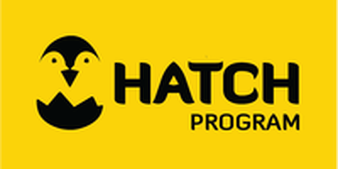
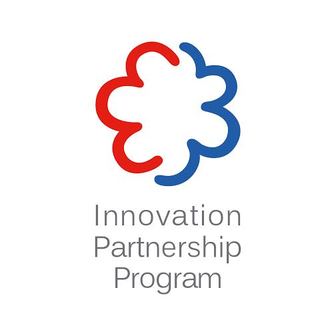
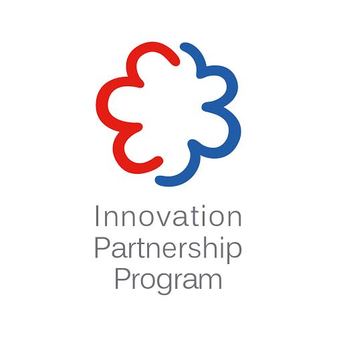
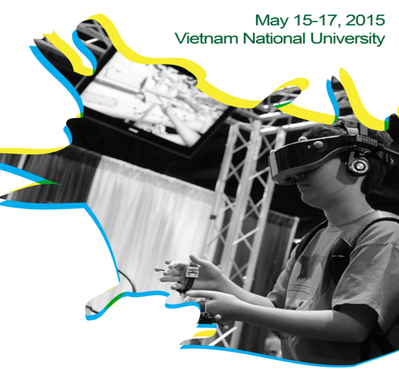
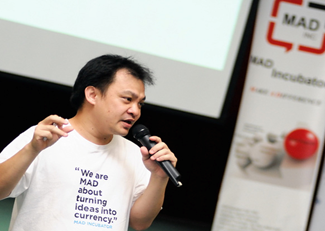
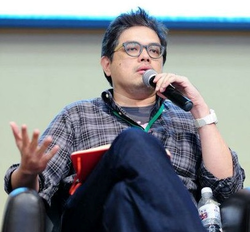
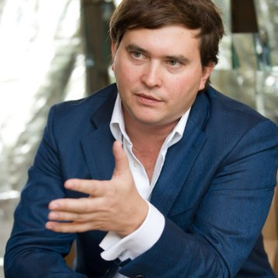
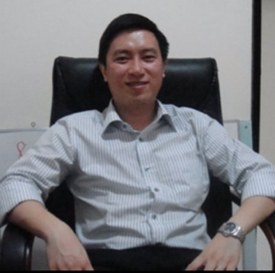

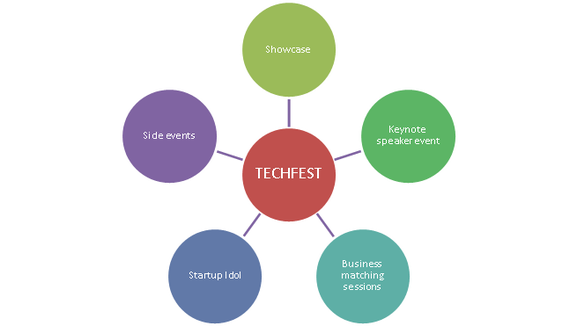

 RSS Feed
RSS Feed

